Ted Fujimoto is President of Landmark Consulting Group, Inc., a management and investment consultancy for scaling innovations in learning. Ted helped to design and create the replication systems and strategy for several of the highest performing public school designs in the country that created over 350 schools, including New Tech Network and Big Picture Learning.
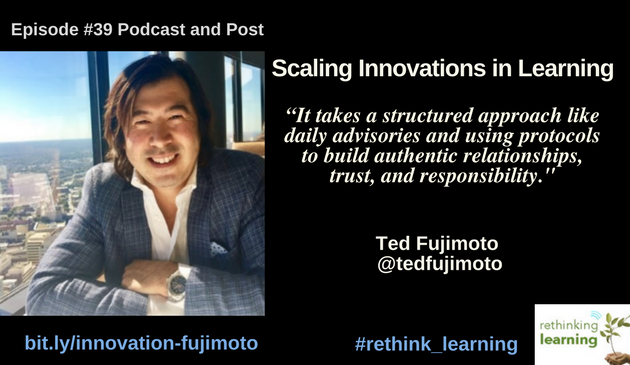
Podcast: Play in new window | Download
I’ve been following Ted on Twitter for many years and am constantly learning from him. When I reached out to Ted, he welcomed me with open arms. I really enjoyed our conversation and added excerpts with links, resources, and pictures to complement his podcast.
About you and your family

I was originally from the Napa Valley in California. During my developmental years, I grew up in Chattanooga, Tennessee, and I lived overseas as a teenager in Japan. I have two kids. One is finishing up her third year of medical school and the other is finishing college who just got married this summer. My wife, Leigh Rachel Faith @unleighshed, is an actor, writer, and producer in the entertainment business. We live in Los Angeles.
What school was like when you were growing up
I was in a traditional school in a single room country schoolhouse. Oversees, we had correspondence school where we had to mail in our assignments and then got them back literally a month later. I was one of those kids who felt that school was boring and in the way. What got me through it was kind of cracking the code. For example, when I was in the correspondence school, I knew I could get the school work done by 10 am and then jump on the subway to tour Tokyo until 6 pm every day. So I got done by speeding through.

Even in college, I got through in three years. There was a bunch of classes where I just went to the midterms and finals. That’s what I needed to do to get the grades and that’s all I did. Even as a professional some 20 odd years later and started dozens of education organizations, I looked back to figure out what part of my education contributed to what I know today. I would say maybe 5% – there were a few classes that gave me a perspective and helped me to do what I do today. But, actually, about 80% was not useful at all.
New Tech Network
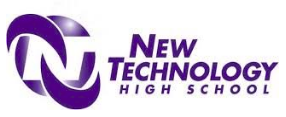
When I moved my company from Silicon Valley to Napa Valley where I was originally from, we were one of the first tech companies there. Then Napa was a farm town then and we couldn’t find employees to help us grow. My first foray in transforming education was literally out of survival. We needed employees even entry level and that resulted in starting that Napa New Technology High School in 1996.
About New Tech High School: https://youtu.be/NuurI4v8nSY
I hired a number of students as interns and later as full-time employees. It was really creating a school that gave kids the real skills that I could literally use the next year. We hear about project-based learning and the variety of ways to do it. I can tell you with New Tech and the teachers like Paul Curtis who went on sabbaticals with the Buck Institute. We wanted it rooted in real-world work and toured the country to find schools. But we couldn’t find schools with that authenticity. One of the people who designed New Tech was involved with Silicon Graphics. The purple that New Tech uses is the purple from Silicon Graphics. Now there are over 200 schools in the New Tech Network.
Big Picture Learning
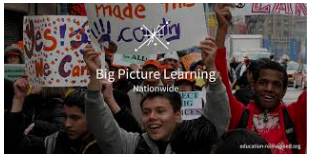 My involvement is to help communities connect to school designs that scale and are replicable. I was on the board and executive team with Big Picture Learning and now am a thought partner. I helped Dennis Littky and Elliot Washor design and create the replication systems and strategy that created over 200 schools. They have public schools located in some of the toughest urban areas in America and are graduating over 95% of their students of which nearly 100% are being accepted to college.
My involvement is to help communities connect to school designs that scale and are replicable. I was on the board and executive team with Big Picture Learning and now am a thought partner. I helped Dennis Littky and Elliot Washor design and create the replication systems and strategy that created over 200 schools. They have public schools located in some of the toughest urban areas in America and are graduating over 95% of their students of which nearly 100% are being accepted to college.
Landmark Consulting

My company, Landmark Consulting, has gone through multiple iterations, but it officially started in 1988, my freshman year of college. We built finance and logistical systemsfor major clients including Remy Martin, LVMH and early cellular phone innovator AirTouch Communications which then became Vodafone and then became part of Verizon. I had no master plan, but I had the skills and the opportunity to use those skills. It actually started out fixing people’s personal computer problems. Then all of a sudden we saw some other problems that needed to be solved. Within a 24-month period, we were literally taking on whole enterprise systems. Part of it is about being at the right place at the right time, but that all boils down to relationships. It was all about doors being open when someone said we have a problem we know you can solve. That’s how it started and continues to work that way.
At its peak, we had several dozen employees mostly in the management consulting area. Today, our focus is very specific around advising investment groups and helping organizations to scale in their strategy. I have a network of consultants that understand this area for different sectors. We handpick maybe a dozen clients that have a high potential to do amazing work in their area or their organization is at risk to do damage in an area. We help them help navigate and gain perspective so they make better decisions.
Scaling innovations in learning
Early in my career, I had a long-term client that developed the retail concept for the Saturn automobile brand. We re-engineered the retail networks of 11 automotive and hospitality brands worldwide like Ritz Carlton. We asked questions like how do you create a new network experience for your customers? How do you create the culture, mindset, and practices that are world-class? The founder of the group was retiring so as part of an investment group acquired the company. During the time that I was there, I learned so much about scaling and creating ecosystems that enable the right mindsets to start to work and function on a consistent basis. This happened at the same time we were looking at how to scale New Tech and Big Picture Learning.
Having aligned goals is not enough. Every school says pretty much the same thing. It is the consistent execution that matters. No one wants to work in a toxic environment. What makes it executable? What we learned is not only how they structure time and space for effective relationships and agree on the goals but how they are going to work together.
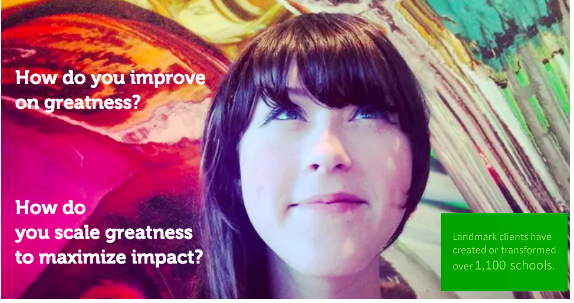
If you have a school that has discourse and disconnects, I ask them “when was the last time you compared student work with other schools and national practice?” It takes a much more structured approach like daily advisories to actively spawn relationships, trust, and responsibility. Not many people have been trained to do this instinctively. Proactively, you need to do this every day and be intentional to build those authentic relationships and use protocols.
The things that distinguish who employers want to hire is how they work as a team, how they think creatively, how they basically manage a team project, how they are reliable, how they articulate their journey and what they are going to solve, know how to get agreement, and how to navigate things that might be falling apart. All the companies I work with are doing innovative things which means no one has done it before. It is unchartered territory.
The education community doesn’t realize how big the gap is and what is applicable. We don’t use email. We use a joint conference call with teams worldwide. The amount of real-time decision-making and collaboration is happening right away. That is different than the routines and schedules that are in schools.
Right to Succeed Foundation
Right to Succeed Foundation is a non-profit that is focused voice and storytelling about the schools really work and are scalable. There are systems to support that. We use our connections and media to share the stories with the world.
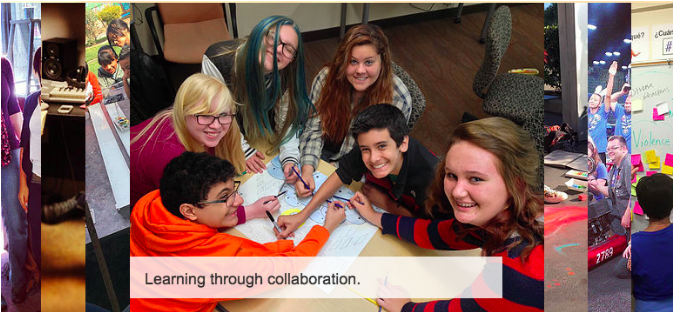
Right to Succeed: https://twitter.com/righttosucceed
****
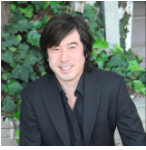 Ted Fujimoto is President of Landmark Consulting Group, Inc., a management and investment consultancy for scaling innovations in learning. Clients include some of the most prominent foundations, investors, and innovators that span across education, media, entertainment, technology, distribution, content, energy and real estate.
Ted Fujimoto is President of Landmark Consulting Group, Inc., a management and investment consultancy for scaling innovations in learning. Clients include some of the most prominent foundations, investors, and innovators that span across education, media, entertainment, technology, distribution, content, energy and real estate.
Ted currently serves on the Board of Directors of the California Credit Union, a $3 billion credit union. He is the co-founder of MuzArt World Foundation and co-chairs the Right to Succeed Foundation, a non-profit focused on transforming public education through the creation of at least 6,000 American Dream Schools within the next 10 years
Ted helped to design and create the replication systems and strategy for several of the highest performing public school designs in the country that created over 350 schools, including New Tech Network and Big Picture Learning.
He has served on the California Education Technology Advisory Committee, received the 2002 Center for Digital Government “In the Arena” Award for Education Leadership in transforming vision to reality, and in Converge Magazines “1999 Year in Review,” Ted was named one of “Educations Dreamers, Leaders, and Innovators.
+1 916-769-2417 Direct
Email: tedf@consultlandmark.com
Twitter: https://twitter.com/tedfujimoto
Landmark Consulting Group: https://twitter.com/ConsultLandmark
Linkedin: https://www.linkedin.com/in/tedfujimoto
Facebook: https://www.facebook.com/public/Ted-Fujimoto
Instagram: https://www.instagram.com/tedfujimoto/
Pinterest: https://www.pinterest.com/tedfujimoto/
Other Podcasts with Ted
https://youtu.be/912jOwBK72E
EdTech Episode #69 – Relationships, Relevance, Rigour in School Reform
*****
For all of the Rethinking Learning podcasts with Barbara Bray, click on the podcast tab at the top, the logo below, or go to https://barbarabray.net/podcasts/
Go to this page for resources, questions, and more information about Barbara’s new book, Define Your WHY.







[…] Ted Fujimoto is President of Landmark Consulting Group, Inc., a management and investment consultancy for scaling innovations in learning. Ted helped to design and create the replication systems and strategy for several of the highest performing public school designs in the country that created over 350 schools, including New Tech Network and Big Picture Learning. …Read More […]